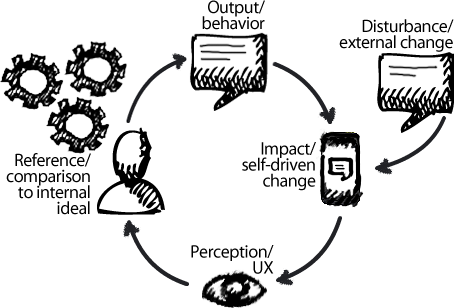Business & Marketing

To manage a successful business, you need to know what people want, how your business is perceived, and how to deal with people. It’s ripe for a PCT approach! For example see Wang et al’s (2010) article in the Review of Business Research. Jeff Vancouver and colleagues have developed an extensive model of a control theory approach to organisational behaviour.
One of the key principles of PCT is that attempts to try to control other people for your own ends without considering their own control systems is counterproductive because it leads to conflict. Powers calls this arbitrary control. So, PCT provides a framework for discussing people’s goals and how they blend or conflict with those of other people within the organisation. Dag Forssell has written a book on using PCT for management that uses this principle as well as many others. For another take on management using PCT, see a recent paper by Fred Nickols. Another advocate of a PCT approach to business is Bartley Madden, as presented in this online video.

Other researchers have used PCT to focus in on marketing as a model to determine how people make decisions on what brands to purchase. One key field of interest is the user experience of commercial products. Alex O’Neal has written a persuasive article for using PCT to model user intent in marketing and therefore empower to users in the community. Click here to read more.
Economics
PCT can provide a new way to try to understand the role that money plays in the distribution of control and power within a social system, and how dependent this system is on the perception of its importance.
In an email thread, Bill Powers explains ‘economic security’ from a PCT perspective.
The Quick Links menu includes several papers on economics based on PCT. It has not yet been used to model financial decisions by individuals within an economy, but seems ripe for such a task!
One paper, by a Bill Williams, invokes PCT to explain a key component of economics – the Giffen Effect. It has also been applied to minority-directed institutional change (Lenk, 2015).
Organisational Psychology
As you will see from the links below, there are many uses of PCT within work psychology. One of the most comprehensive overviews of its contribution is provided by Vancouver (2000).
Taking one specific example, psychologists can help businesses through using control theory to engage in coaching to improve performance and/or well-being (e.g. Grant, 2012; Gregory, Beck, & Carr, 2011)



